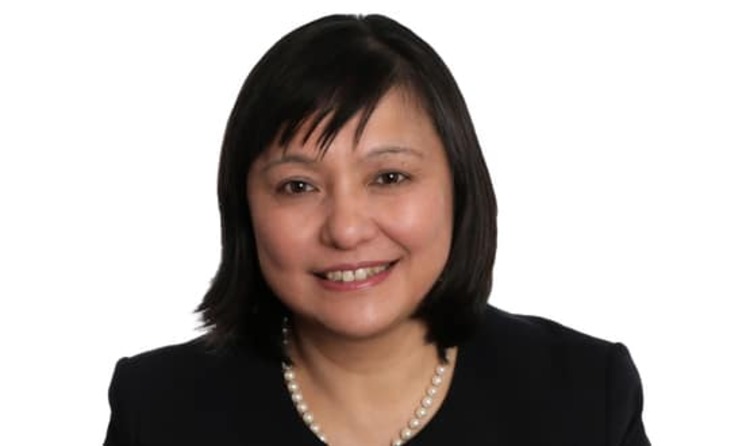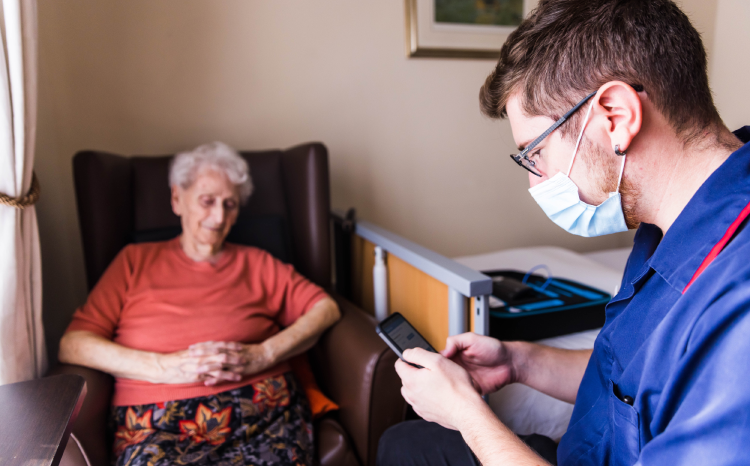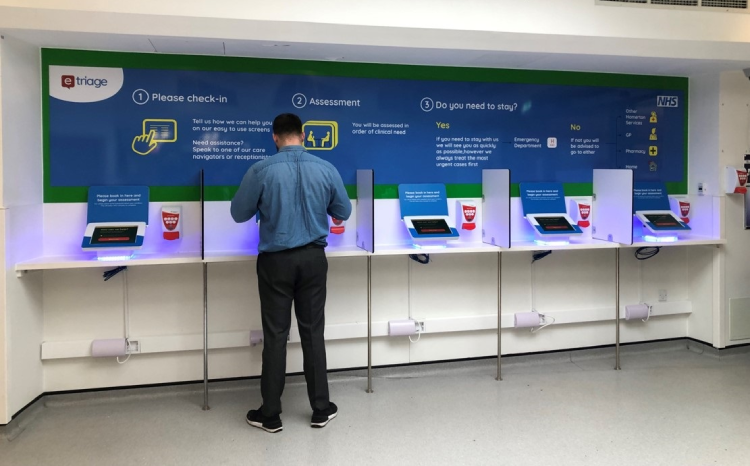Industry news in brief
- 28 June 2019

This months industry round-up features news one in five NHS trusts has developed AI technology to improve patient services and UK-based online doctor Zava has been rated as Good by the Care Quality Commission (CQC).
One in five NHS trusts developed AI tech to improve patient services
One in five NHS Trusts have deployed artificial intelligence technology to improve patient services.
Double that figure are currently considering it and nearly one in 10 are planning deployments in the next 12 months, according to new figures.
This new data was obtained by a Freedom of Information (FOI) request from Nuance Communications – issued to 40 NHS Trusts, with 26 responding. The request quizzed trusts around their use of technology to improve patient care, as well as supporting the development of clinical records.
Alongside this movement, one in four trusts are currently implementing some form of speech recognition to aid the development of clinical documentation – enabling clinicians to spend more time treating patients and less time doing administration.
While these developments are encouraging, there is still more work to be done. The request also found that nearly three in four trusts still rely on pen and paper to document clinical patient records.
This figure is down from 93% in 2017 – demonstrating progress – but also highlighting the clear journey ahead.
Dr Simon Wallace, chief clinical officer at Nuance Communications, said: “The current reliance on handwriting to complete patient records suggests we are still a way from the NHS’ 2020 paperless pledge.
“A lack of electronic patient record deployments and inefficient documentation processes are currently putting even more pressure on an already stretched organisation, with many clinicians forced to spend around half their time creating and updating patient records – rather than treating patients.”
AI-powered radio helps people with dementia
A new £2.7 million project has begun trials to personalise live radio using artificial intelligence (AI), with the aim of transforming the daily life of people living with dementia.
Radio Me, based in Edinburgh, will seamlessly remix live digital broadcasts with information, music and personalised reminders, delivered by soothing voices powered by advanced CereProc Text-to-Speech technology.
The personalised reminders will include prompts to take mediation, lock the door, use the toilet, to eat and drink, among many more. The hope is this will support caregivers in the home and tackle the £26.3 billion annual cost of dementia to the NHS by helping patients remain in their homes for longer.
Colin Capper, head of research development and evaluation at Alzheimer’s Society, said: “We need to harness technologies like artificial intelligence and we’re confident Radio Me will be a hit – it offers practical as well as personalised support, which is vital as everyone’s journey with dementia is different.
“We’re excited about what this project will reveal about the potential impact of technology on the lives of people with dementia.”
Princess Alexandra placed among top 6 trusts in radiology
The Princess Alexandra Hospital NHS Trust (PAHT) has been placed among the top six trusts nationwide in a review of radiology reporting standards in NHS organisations published by the Care Quality Commission (CQC).
The radiology department at PAHT processes 20,000 radiology images a month and has been in the forefront of adopting a new system, from Agfa Healthcare, which is being rolled out in the NHS.
New standards were published last year by the Royal College of Radiologists (RCR) after the CQC identified a lack of national standards in reporting radiology patient examinations.
A range of standards were adopted including that reporting should prompt appropriate care and that the language used should be unambiguous. The result is to speed up diagnosis and treatment.
The CQC has since published reporting figures for trusts. The Princess Alexandra Hospital NHS Trust has been placed second in the country for the proportion of patient images reported within the 24 hours target for inpatient services and in sixth place for the proportion of emergency department (ED) images reported within the four-hour target.
Digital health provider Zava rated ‘Good’ by CQC
UK-based online doctor Zava has been rated as Good by the Care Quality Commission (CQC).
The digital health provider provides online consultations and services for a range of areas including sexual health, men’s health, women’s health, travel-related requests, as well as a range of chronic conditions.
Ratings for the service across all key areas were rated as Good, with the CQC noting the service “treated people with compassion, kindness, dignity and respect”.
James Davies, chief operating officer of Zava, said: “Our utilisation of technology has not only increased healthcare efficiencies, now making us one of the leading digital healthcare providers in Europe, but has also responded to patients’ demands for ease, allowing them to take control of their healthcare and feel empowered to look after their own wellbeing.
“As our service grows, we will continue to apply these principles of safe and compassionate care to all Zava patients.”
Visulytix partners with Microsoft to fast-track diagnosis
Visulytix has created a program called Pegasus that sends 2D and 3D eye scans to the Microsoft Azure cloud, which then uses artificial intelligence to spot early signs of glaucoma, diabetic retinopathy and macular degeneration in seconds.
The healthcare professional conducting the scan then looks at the regions of the image the AI has highlighted as potentially showing signs of those diseases and decides whether to refer the patient to see a specialist.
Jay Lakhani, chief executive of Visulytix, said the key to preventing blindness was catching conditions early, and AI is helping healthcare professionals do that.
“We see our solution as ‘decision support’ – AI and doctor working together. What Pegasus does is upskill the user, so they can operate with a specialist’s level of accuracy,” he said.
“AI-provided decision support needs to be used to counter the fact that there simply aren’t enough ophthalmologists. Pegasus can fill that void by upskilling non-specialists so they make better referrals, leading to better use of healthcare resources.
“Simultaneously, by reducing false negatives, Pegasus can help to identify patients who would have otherwise gone blind in time thereby reducing the pressure on the NHS, as well as the patient’s family and friends.”
BridgeHead Software scoops award
BridgeHead Software has scooped its second MedTech Breakthrough award, with the Independent Clinical Archive, HealthStore winning the ‘best healthcare data repository solution’ award.
HealthStore assists healthcare organisations to break down data silos created by closed applications and hardware by extracting the patient and administrative data from these systems, ingesting and indexing that information into HealthStore (where it is safeguarded and protected), and then making that data available to users as part of a 360-degree patient view.
As HealthStore is built on and supports open healthcare data standards, it works with any of a healthcare organisation’s chosen applications.
“While healthcare data is ushering a new era of powerful digital health tools that promise to significantly improve clinical and healthcare system efficiency, along with that data comes a new set of complex issues for healthcare organisations,” said James Johnson, managing director, MedTech Breakthrough.
“From security vulnerabilities and loopholes, to regulatory and compliance mandates, healthcare organisations are facing a mountain of data challenges. BridgeHead is tackling these issues head-on with ‘breakthrough’ healthcare data solutions that help companies navigate this new world safely and securely.”
Healthcare partnership launched to provide better online access
PhysioFast Online (PFO), who offer interactive video call appointments with qualified physiotherapists, has launched a strategic partnership with GPDQ, the GP-on-demand service, which enables both organisations to seamlessly offer a broader range of online services.
As part of this new partnership, companies or users scheduling a video call appointment with a physio will also be able book to see a GP at the same time, and vice-versa.
Katie Knapton, founder of PhysioFast Online, said: “Our interactive video calls and GPDQ’s on-demand solutions will complement each other perfectly and benefit users of both platforms.
“Leading research has found that video consultations are as effective as face-to-face appointments and our experience is that 3 in 4 people can be triaged, assessed and supported online without any need for physical treatment.”
Dr Anshumen Bhagat, chief medical officer and founder of GPDQ, added: “We only provide access to experienced NHS GPs to ensure the care of our customers will be of the highest possible standard. Founded by qualified physiotherapists with extensive experience, it is clear that PFO shares our values, which is incredibly important to us.”




